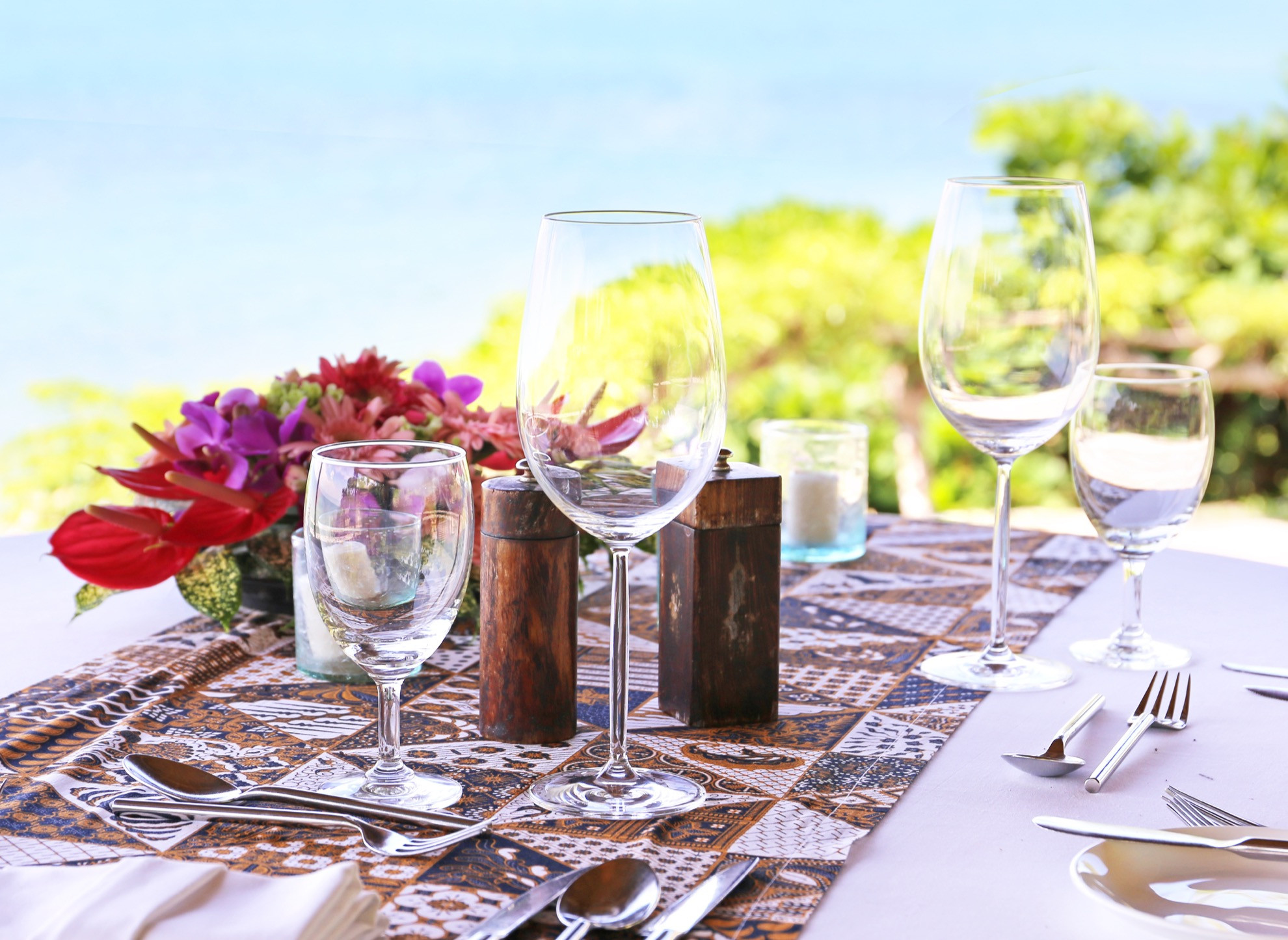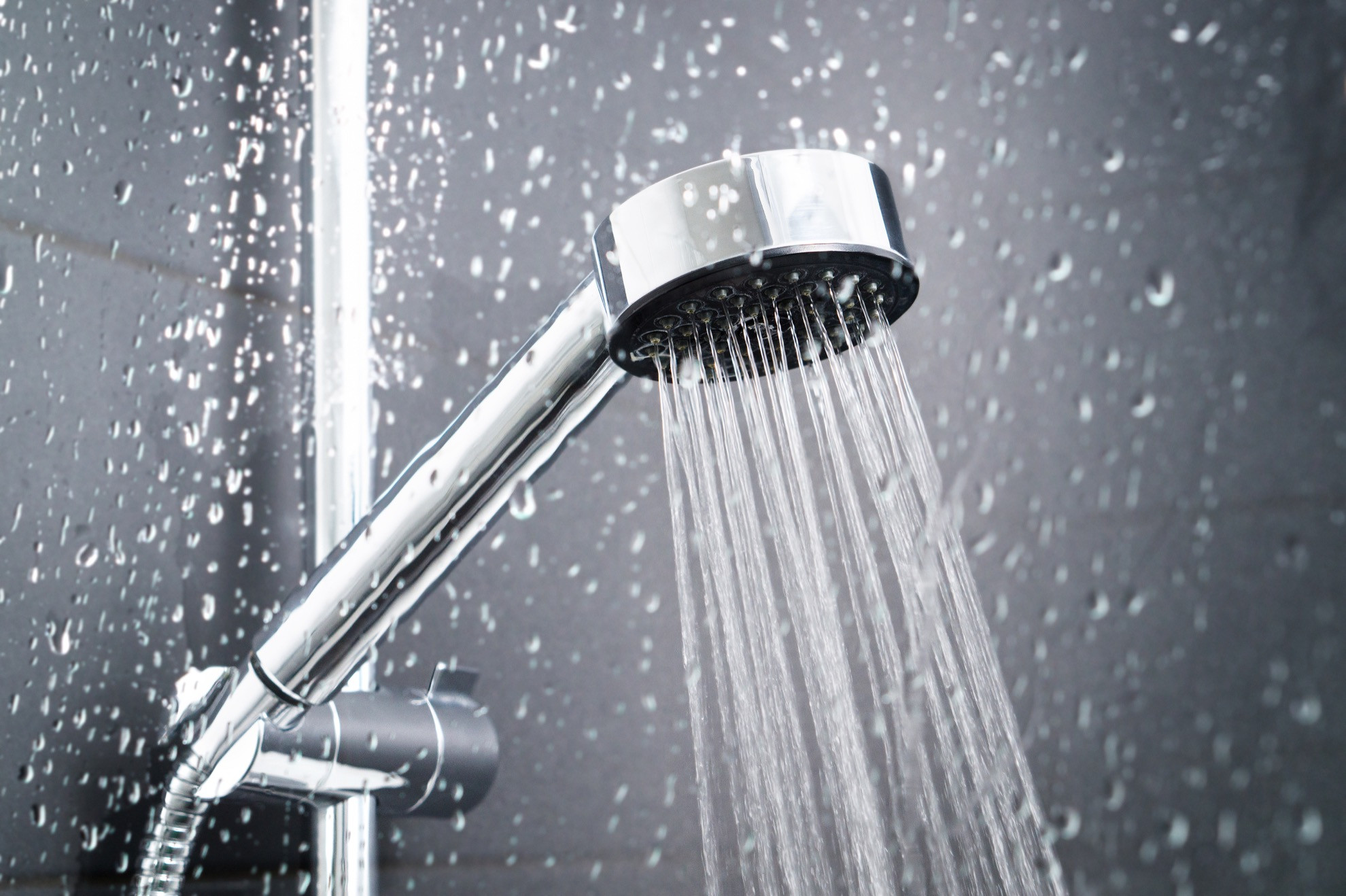Are you an LGBTQ+ traveler planning a trip to Mexico? Then you’ve probably heard about the infamous water south of the border. At gaymexico.net, we’re here to help you navigate the ins and outs of staying healthy while exploring the vibrant culture and welcoming LGBTQ+ scene in Mexico. This guide provides practical advice and helpful tips to ensure a safe and enjoyable trip, along with information on finding LGBTQ+-friendly destinations, events, and resources. Let’s explore how to stay hydrated, healthy, and happy during your trip to Mexico.
1. Why Should You Avoid Ordinary Tap Water in Mexico?
You should avoid it because sanitation standards differ from what you’re used to. Exposure to bacteria, viruses, or parasites can cause gastrointestinal upset.
While Mexico has greatly improved water treatment, filtration, and purification, it’s still risky for tourists. “Traveler’s tummy” is common because of different sanitation standards. According to the Centers for Disease Control and Prevention (CDC), 30 to 70 percent of travelers experience stomach upset abroad. To be safe, always drink bottled, purified water. Ensure the seal is intact and avoid pouring it into glasses or mugs.
2. Where Can You Find Safe Bottled Water in Mexico?
You can find it easily in resorts, hotels, beach snack bars, and street vendors. It costs about a dollar a bottle, offering peace of mind.
Popular Mexican brands include Bonafont and Ciel. Familiar brands like Dasani, Evian, Fiji, and VOSS are also widely available. Avoid refilling disposable water bottles. Instead, recycle them and buy fresh, sealed ones as needed. Carrying metal or heavy plastic bottles for refills, a common sustainable practice, is not recommended in Mexico.
 A table set for lunch in Mexico.
A table set for lunch in Mexico.
3. Should You Insist On Bottled Water at Restaurants in Mexico?
Yes, insist on bottled water to avoid potential contamination from tap water. Bringing your own bottled water is also a good idea.
Mexican cuisine is recognized by UNESCO for its deliciousness. When dining out, especially at local spots recommended by your concierge or guide, request bottled water. Carrying extra bottles during your off-resort adventures ensures you stay hydrated even where safe water isn’t readily available. This precaution helps you enjoy your culinary experiences without risking illness.
4. Why Is Ice Off-Limits in Mexico?
Ice is off-limits because the water source is often unknown, posing a risk of illness. It’s not worth the risk to your health.
Staying hydrated in Mexico’s hot climate is crucial, but avoid ice cubes in your beverages. Whether it’s beer, margaritas, or agua fresca, ensure no ice is added. The water used to make ice may not be purified, increasing the risk of contamination. Prioritize your health and enjoy your drinks without ice.
5. Is It Safe to Eat Salads in Mexico?
It’s generally safer to skip the salad. Although some restaurants soak produce in anti-germ solutions, there are no guarantees.
Raw fruits and vegetables, especially salad ingredients like lettuce, can retain water. If these aren’t properly treated with anti-germ solutions, they can cause stomach distress. Play it safe by skipping salads and avoiding unpeeled raw fruits and vegetables. Enjoy cooked foods and items you can peel yourself to minimize health risks during your vacation.
 The Distintivo H seal of approval.
The Distintivo H seal of approval.
6. What Is the Distintivo H Seal of Approval?
The Distintivo H seal indicates that a restaurant has trained its staff in food and water safety best practices. It shows a commitment to customer safety.
This prestigious award is given to Mexican eateries that have demonstrated a commitment to food and water quality. These establishments have used a food safety consultant to train their staff. High-end resorts often have this seal. If you find a restaurant with the Distintivo H, you can feel confident about drinking the water, using ice, and eating salads. Confirm this with your hotel upon check-in or ask staff for recommendations on local restaurants with the seal.
7. How Can You Safely Boil Water for Coffee or Tea in Mexico?
If you’re out of bottled water, boil tap water for 5 minutes to kill any harmful organisms. Many hotels provide hot pots or kettles for this purpose.
For your morning caffeine fix, use boiled tap water if bottled water isn’t available. A rolling boil for 5 minutes is sufficient to eliminate bacteria and parasites. Use the hot pots or kettles provided in many hotel rooms to ensure the water is safe for consumption.
8. What Are the Best Bottled Water Brands in Mexico?
Trustworthy brands such as E-Pura, Ciel, Sante, Bonafont, and Electrpura are reliable choices. E-Pura is often recommended for its taste and reputation.
When buying bottled water in Mexico, stick to established brands to ensure quality and safety. These brands are widely available and offer a safe alternative to tap water.
9. Why Should You Use a Water Filter Bottle When on the Move in Mexico?
Water filter bottles provide on-the-go water safety, allowing you to access clean drinking water from any tap. They are cost-effective and environmentally friendly.
These bottles remove unsafe contaminants, including viruses, bacteria, parasites, heavy metals, chemicals, and microplastics. Ideal for travelers, they enable you to safely drink water from taps on beaches, in cities, or in rural areas. Water filter bottles are a sustainable alternative to buying bottled water, reducing plastic waste while ensuring your safety.
10. What Is Montezuma’s Revenge?
Montezuma’s revenge, also known as traveler’s diarrhea, results from consuming contaminated food or water. It causes loose stools and stomach cramps.
This common ailment is caused by bacteria or viruses in food and water, particularly in developing countries with inadequate water quality standards. While usually self-limiting, it’s best to avoid it altogether by taking precautions like drinking bottled water and avoiding risky foods.
11. Why Should You Use Bottled Water For Brushing Your Teeth in Mexico?
Use bottled water to avoid potential contamination from tap water, even though the amount ingested is small.
To prevent illness, leave a bottle of water by your faucet as a reminder. A quick dip of your brush is sufficient for both beginning and rinsing. This simple step can save you from discomfort during your vacation.
 The head of a shower.
The head of a shower.
12. Why Should You Keep Your Mouth Shut in the Shower in Mexico?
Even if your resort says it offers filtered water, the water you’re washing with might not be potable. Avoid accidental ingestion to prevent stomach issues.
Prevent even tiny accidental drops from entering your mouth while showering. This precaution can save you from severe distress during your vacation.
13. How Safe Is It to Take a Dip in Swimming Pools in Mexico?
Ensure any swimming pool, hot tub, or spa is clean and well-maintained. At your resort, this shouldn’t be an issue, but be cautious off-site.
Recreational water can appear clear but may contain pathogens if not properly maintained. Stick to swimming in your hotel’s pool or the ocean for a safer experience.
14. What Should You Do If You Accidentally Slip Up and Ingest Tap Water in Mexico?
Don’t panic. In most cases, Pepto-Bismol or Imodium can help. Consider a preemptive antibiotic prescription for emergencies.
If you accidentally ingest tap water, a simple remedy like Pepto-Bismol or Imodium can often alleviate symptoms. Consult your doctor before your trip for an antibiotic prescription like doxycycline or ciprofloxacin. Take it at the first sign of stomach upset. After returning home, follow up with your doctor to ensure no further treatment is needed.
15. Understanding LGBTQ+ Safety and Acceptance in Mexico
While Mexico has made strides in LGBTQ+ rights, attitudes vary regionally. Major cities like Mexico City and Puerto Vallarta are known for their vibrant and accepting LGBTQ+ scenes.
Recent progress includes the legalization of same-sex marriage nationwide and increasing protections against discrimination. However, societal attitudes can be conservative in some areas.
According to a 2023 report by Human Rights Watch, LGBTQ+ individuals in Mexico still face challenges, including discrimination and violence, particularly in more rural areas. The U.S. State Department advises LGBTQ+ travelers to be aware of local customs and exercise caution, especially in unfamiliar areas.
16. Finding LGBTQ+-Friendly Destinations in Mexico
Several Mexican cities are particularly welcoming to LGBTQ+ travelers. Here are a few highlights:
- Mexico City: Offers a thriving LGBTQ+ scene with numerous bars, clubs, and cultural events. The annual Pride celebration is one of the largest in Latin America.
- Puerto Vallarta: Known as the “gay beach capital” of Mexico, it boasts a large LGBTQ+ community with gay-friendly resorts, beaches, and nightlife.
- Guadalajara: Features a growing LGBTQ+ scene with cultural events and festivals. The city is becoming increasingly popular among LGBTQ+ travelers seeking a more authentic Mexican experience.
- Cancun: While primarily known for its resorts, Cancun also has LGBTQ+-friendly venues and events. Its proximity to beautiful beaches and historical sites makes it a popular choice.
17. Tips for Safe and Enjoyable Travel in Mexico
To ensure a smooth and memorable trip, consider these tips:
- Research your destination: Understand the local LGBTQ+ scene and any potential safety concerns.
- Stay informed: Keep up-to-date with local news and advisories.
- Use reputable services: Book accommodations, tours, and transportation through trusted providers.
- Be discreet when necessary: In more conservative areas, avoid public displays of affection that may attract unwanted attention.
- Learn basic Spanish: Knowing a few phrases can help you navigate situations and communicate with locals.
- Connect with local LGBTQ+ groups: They can provide valuable insights and support.
- Share your itinerary: Let friends or family know your plans and check in regularly.
- Be aware of your surroundings: Pay attention to your environment and trust your instincts.
18. Resources for LGBTQ+ Travelers in Mexico
Several organizations and websites offer valuable information and support for LGBTQ+ travelers in Mexico:
| Resource | Description |
|---|---|
| GayMexico.net | Offers guides to LGBTQ+-friendly destinations, events, and businesses in Mexico. |
| U.S. Embassy in Mexico | Provides safety and security information for U.S. citizens traveling in Mexico. |
| Human Rights Watch | Reports on human rights issues, including LGBTQ+ rights, in Mexico. |
| Local LGBTQ+ organizations | Offer community support and resources in various cities throughout Mexico. |
| Travel advisories | Provide up-to-date safety information from your home country’s government. |
19. What To Do If You Encounter Discrimination or Harassment in Mexico
Despite increasing acceptance, incidents of discrimination or harassment can still occur. Here are steps to take:
- Stay calm: Avoid escalating the situation.
- Document the incident: Take notes, photos, or videos if possible.
- Report the incident: Contact local authorities or LGBTQ+ organizations.
- Seek support: Reach out to friends, family, or support networks.
- Contact your embassy or consulate: They can provide assistance and guidance.
- Share your experience: Documenting and sharing incidents can help raise awareness and promote change.
20. How to Stay Connected with the LGBTQ+ Community in Mexico
Connecting with the local LGBTQ+ community can enrich your travel experience and provide a sense of belonging. Consider these options:
- Attend LGBTQ+ events: Look for local Pride celebrations, parties, and cultural gatherings.
- Visit LGBTQ+ bars and clubs: They offer a safe and welcoming space to socialize.
- Join LGBTQ+ social media groups: Connect with locals and other travelers online.
- Volunteer with LGBTQ+ organizations: Give back to the community and meet like-minded people.
- Use LGBTQ+ travel apps: Find local businesses and events recommended by other LGBTQ+ travelers.
21. Summary of Key Safety Tips for LGBTQ+ Travelers in Mexico
To recap, here are essential safety tips for LGBTQ+ travelers in Mexico:
- Be aware of local customs and attitudes.
- Research your destination and plan accordingly.
- Use reputable services and accommodations.
- Stay informed about safety and security concerns.
- Connect with local LGBTQ+ resources and communities.
- Exercise caution in unfamiliar areas.
- Trust your instincts and prioritize your safety.
22. Current Legal Protections for LGBTQ+ Individuals in Mexico
Mexico has made significant strides in LGBTQ+ rights, offering legal protections that include:
- Nationwide legalization of same-sex marriage: Ensures equal rights and recognition for same-sex couples.
- Adoption rights: LGBTQ+ couples have the right to adopt children in many parts of the country.
- Anti-discrimination laws: Protect against discrimination based on sexual orientation and gender identity in employment, housing, and services.
- Gender identity laws: Allow transgender individuals to change their legal gender on official documents.
- Hate crime laws: Enhance penalties for crimes motivated by anti-LGBTQ+ bias.
23. Understanding Cultural Sensitivities and Etiquette in Mexico
Respecting local customs and traditions is essential for responsible travel. Keep these points in mind:
- Dress modestly: In more conservative areas, avoid revealing clothing.
- Be mindful of public displays of affection: Limit public displays of affection, especially in rural areas.
- Learn basic Spanish phrases: Communication can bridge cultural gaps.
- Respect religious customs: Be aware of local religious practices and beliefs.
- Support local businesses: Contribute to the local economy by purchasing goods and services from small businesses.
- Be open-minded and respectful: Embrace cultural differences and avoid making assumptions or stereotypes.
24. How To Practice Responsible and Sustainable Travel in Mexico
To minimize your environmental and social impact, consider these practices:
- Reduce your carbon footprint: Choose eco-friendly transportation options and accommodations.
- Conserve water and energy: Be mindful of your water and energy usage.
- Support local conservation efforts: Donate to or volunteer with environmental organizations.
- Respect wildlife and natural habitats: Avoid disturbing or feeding animals.
- Dispose of waste properly: Follow local guidelines for waste disposal and recycling.
- Choose sustainable tours and activities: Select operators that prioritize environmental and social responsibility.
25. Addressing Common Misconceptions About Mexico
It’s important to dispel common misconceptions about Mexico, which often portray the country as unsafe or unwelcoming. While safety concerns exist, many areas are perfectly safe and welcoming to tourists, including LGBTQ+ travelers.
Here are some common misconceptions and the realities:
- Misconception: Mexico is dangerous for tourists.
- Reality: While some areas have safety concerns, many tourist destinations are safe and well-protected.
- Misconception: All Mexicans are unfriendly to LGBTQ+ people.
- Reality: Attitudes vary, but many Mexicans are accepting and supportive of LGBTQ+ rights, particularly in urban areas.
- Misconception: Tap water is always safe to drink.
- Reality: Tap water quality varies, and it’s generally recommended to drink bottled or filtered water.
- Misconception: All Mexican food is extremely spicy.
- Reality: While some dishes are spicy, there are many mild and flavorful options to suit different tastes.
26. Resources for Staying Informed About Safety Conditions in Mexico
Staying informed about safety conditions can help you make informed decisions and minimize risks. Consult these resources:
- U.S. Department of State: Provides travel advisories and safety information for U.S. citizens.
- Canadian government: Offers travel advice and advisories for Canadian citizens.
- Local news sources: Stay updated on current events and safety conditions in your destination.
- Travel forums and blogs: Share experiences and get tips from other travelers.
- Social media: Follow local authorities and travel experts for real-time updates.
- LGBTQ+ travel forums: Discuss safety concerns and get advice from other LGBTQ+ travelers.
27. Practical Tips for Staying Healthy During Your Trip to Mexico
In addition to water safety, here are practical tips for staying healthy during your trip:
- Wash your hands frequently: Use soap and water or hand sanitizer to prevent the spread of germs.
- Protect yourself from mosquito bites: Use insect repellent and wear long sleeves and pants.
- Get vaccinated: Consult your doctor about recommended vaccinations for Mexico.
- Eat at reputable restaurants: Choose establishments with good hygiene practices.
- Avoid street food: If you do eat street food, make sure it’s freshly prepared and cooked thoroughly.
- Protect yourself from the sun: Use sunscreen, wear a hat, and seek shade during peak hours.
- Stay hydrated: Drink plenty of water, especially in hot weather.
- Get travel insurance: Ensure your policy covers medical expenses and emergency evacuation.
28. Mental Health and Well-being Tips While Traveling
Travel can be exciting but also stressful. Prioritize your mental health with these tips:
- Plan downtime: Schedule time for relaxation and self-care.
- Stay connected: Communicate with friends and family back home.
- Practice mindfulness: Engage in activities that help you stay present and centered.
- Manage stress: Identify and address sources of stress, such as travel delays or cultural differences.
- Seek support: If you’re struggling, reach out to mental health professionals or support networks.
- Limit alcohol consumption: Excessive alcohol can exacerbate stress and anxiety.
- Get enough sleep: Aim for 7-8 hours of sleep per night.
- Exercise regularly: Physical activity can improve mood and reduce stress.
29. Conclusion: Enjoying a Safe and Welcoming Trip to Mexico
By following these guidelines, you can enjoy a safe, healthy, and welcoming trip to Mexico. Whether exploring vibrant cities or relaxing on beautiful beaches, Mexico offers a rich cultural experience for LGBTQ+ travelers. Remember to stay informed, be respectful, and prioritize your well-being.
For more information on LGBTQ+-friendly destinations, events, and resources in Mexico, visit gaymexico.net. Start planning your adventure today and discover the magic of Mexico!
30. Call to Action
Ready to explore the beauty and excitement of Mexico? Visit gaymexico.net for comprehensive travel guides, insider tips, and a supportive community. Discover LGBTQ+-friendly destinations, events, and resources to make your trip unforgettable. Start your adventure today!
Address: 3255 Wilshire Blvd, Los Angeles, CA 90010, United States.
Phone: +1 (213) 380-2177
Website: gaymexico.net
FAQ: Staying Safe With Mexican Water
Why Is It Risky To Drink Tap Water in Mexico?
It’s risky because Mexico’s tap water often contains harmful bacteria and parasites, leading to waterborne illnesses. The water faces challenges due to inadequate infrastructure, pollution, and microbial contamination.
Does Boiling Mexican Tap Water Make It Safe?
Yes, boiling tap water for 5 minutes can kill harmful bacteria and parasites, making it safer to drink when bottled water isn’t available.
How Can I Prevent Getting Sick From Tap Water in Mexico?
Drink filtered, bottled, or purified water at all times. Avoid refilling water bottles with tap water and avoid ice cubes made with local tap water.
Can You Drink Water in Mexico Resorts?
Some upscale resorts have elaborate filtration systems, but it’s not the norm. Most provide bottled water in rooms and throughout the property for guest consumption.
Is Drinking Water in Mexico City Safe?
No, visitors should avoid drinking water directly from the faucet in Mexico City, as it may not be treated to standards suitable for consumption by tourists.

